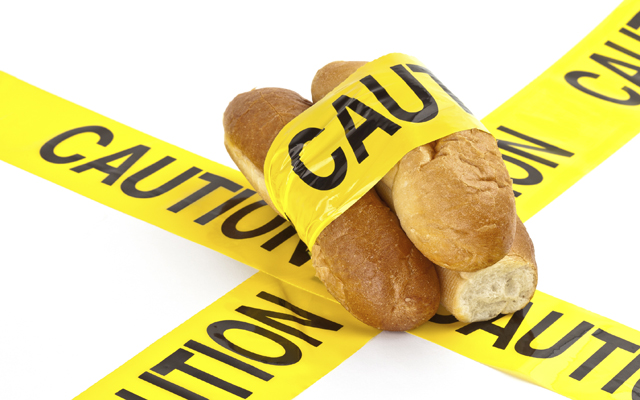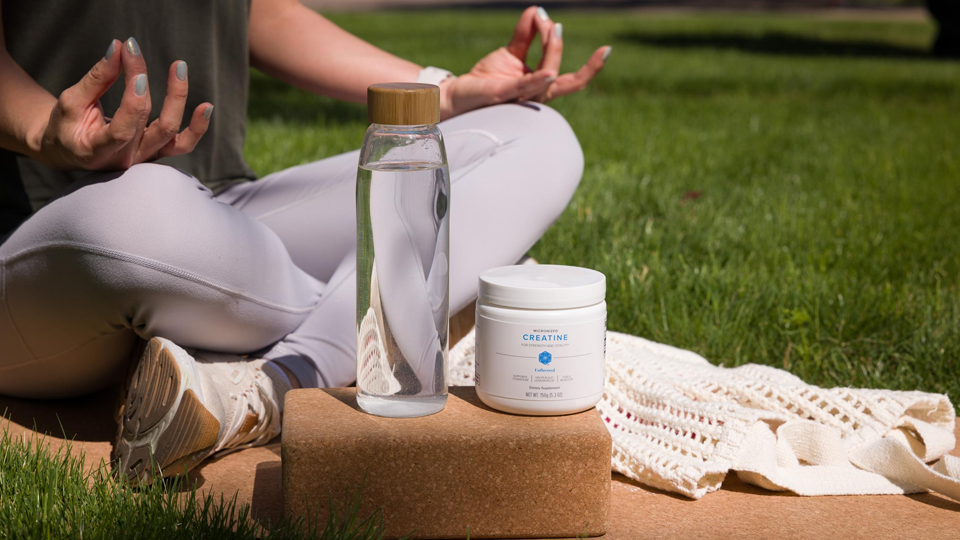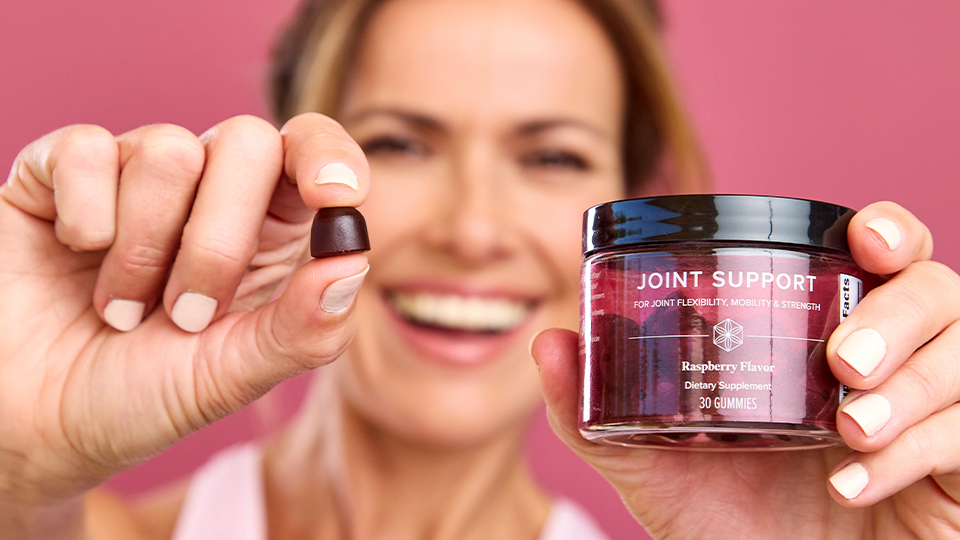Many athletes get nervous when the scale goes up a pound the morning after a carbohydrate-rich meal. Those carbohydrates are being stored in muscle along with water. They may seem fattening because with each one gram of carbohydrate stored in your muscle, you also store about three grams of water. When you eat lots of carbs you might gain weight but it is water weight, not body fat.
If you are a competitive athlete who works out hard every day, you might have muscles that are carbohydrate depleted. When eating carbohydrates your muscles have a chance to refuel their depleted glycogen (carbohydrate) stores. Unless you have an illness or medical issue, eliminating sugar is not ideal for health or body composition. In fact, it may do far more harm than good. This does not mean eat more candy and drink more soda, rather the natural sugars found in wholesome food and well-formulated nutrient-dense shakes and supplements.
Some athletes are afraid of carbs, and end up negatively affecting their performance by unknowingly or deliberately reducing carbohydrates from their diet. In a recent study done on competitive cyclists about 30 percent had sub-optimal glycogen levels and none of them knew about it (1). For intense training athletes, carbohydrate ingestion has been shown time and time again to improve performance (2-7). The reason for better performance is during exercise, muscles can use both fat and carbohydrate for energy. At higher exercise intensities fat cannot fully meet the energy demand so carbohydrate use increases. Carbohydrates are even more important when exercising at high intensities during training and competition. Fat simply cannot provide the energy needed fast enough.
Glycogen is the storage form of glucose (a sugar) in our bodies. Carbohydrates are a limited source of energy accounting for only about one to two percent of total bodily energy stores (8). About 80 percent of total carbohydrate is stored in muscle, about 14 percent is stored in the liver, and about six percent in the blood (9). This equals about 300 to 400 grams of sugar stored in muscle and about 70 to 100 grams stored in the liver. Obviously we have a limited and low capacity to store sugar, so, for muscle tissue, sugar is crucial for energy during intense exercise.
A limited capacity to store carbohydrate coupled with a diet low in carbohydrate is a bad match for athletes. Multiple studies have found that fatigue and decrease in performance is associated with low carbohydrate diets that cause glycogen depletion (9-11). Studies also show that low glycogen levels may even cause overtraining (12;13). If glycogen levels get depleted muscles increase the breakdown muscle protein to make glucose (14). Essentially, the muscle “eats itself to feed itself” by increasing the amount of protein and amino acids used for energy purposes. If this happens, the athlete could lose muscle and decrease performance.
Athletes need to know the proper amounts of carbohydrates to take in every day. Lower intensity exercise involves less carbohydrate needs generally (think jogging). But if it’s done for long periods of time the intake of carbs will be greater. High-intensity workouts rely on glucose almost exclusively—there is always a high degree of glycogen depletion and therefore these kinds of workouts require a higher carbohydrate intake (think high-intensity weight training).
The guidelines for carbohydrate consumption during competition has traditionally called for 30 to 60 grams per hour (12). However, more recently the overall conclusion seems to be that performance benefits can be observed with relative small amounts of carbohydrate (16 grams per hour), but no further improvement has been observed with the ingestion of larger amounts (15). For such a high amount of carbohydrate it is essential to mix carbohydrates of different rates of absorption. A mixture of simple and complex carbohydrates can help increase uptake, spare the bodily carbohydrate stores, and improve exercise performance (15).
References
- San Mill+ín I+, Gonz+ílez-Haro C, Hill J. Indirect Assessment of Glycogen Status in Competitive Athletes: 3258: Board# 221 June 4 9: 30 AM-11: 00 AM. Medicine & Science in Sports & Exercise 2011;43:948-9.
- Anantaraman R, Carmines AA, Gaesser GA, Weltman A. Effects of carbohydrate supplementation on performance during 1 hour of high-intensity exercise. International journal of sports medicine 1995;16:461-5.
- Francescato MP, Puntel I. Does a pre-exercise carbohydrate feeding improve a 20-km cross-country ski performance? The Journal of sports medicine and physical fitness 2006;46:248-56.
- Gleeson M, Maughan RJ, Greenhaff PL. Comparison of the effects of pre-exercise feeding of glucose, glycerol and placebo on endurance and fuel homeostasis in man. European journal of applied physiology and occupational physiology 1986;55:645-53.
- Sherman WM, Peden MC, Wright DA. Carbohydrate feedings 1 h before exercise improves cycling performance. The American journal of clinical nutrition 1991;54:866-70.
- Tokmakidis SP, Karamanolis IA. Effects of carbohydrate ingestion 15 min before exercise on endurance running capacity. Applied Physiology, Nutrition, and Metabolism 2008;33:441-9.
- White JP, Wilson JM, Austin KG, Greer BK, St John N, Panton LB. Effect of carbohydrate-protein supplement timing on acute exercise-induced muscle damage. Journal of the International Society of Sports Nutrition 2008;5:1-7.
- Gropper S, Smith J. Advanced nutrition and human metabolism. Cengage Learning, 2012.
- Sherman WM. Metabolism of sugars and physical performance. The American journal of clinical nutrition 1995;62:228S-41S.
- Coyle EF, Hagberg JM, Hurley BF, Martin WH, Ehsani AA, Holloszy JO. Carbohydrate feeding during prolonged strenuous exercise can delay fatigue. Journal of Applied Physiology 1983;55:230-5.
- Coggan AR, Coyle EF. Reversal of fatigue during prolonged exercise by carbohydrate infusion or ingestion. Journal of Applied Physiology 1987;63:2388-95.
- Sherman WM. Metabolism of sugars and physical performance. The American journal of clinical nutrition 1995;62:228S-41S.
- Snyder AC, Kuipers HARM, Cheng B, Servais RODR, Fransen ERIK. Overtraining following intensified training with normal muscle glycogen. Medicine and science in sports and exercise 1995;27:1063-70.
- Lemon PW, Mullin JP. Effect of initial muscle glycogen levels on protein catabolism during exercise. Journal of Applied Physiology 1980;48:624-9.
- Jeukendrup AE. Carbohydrate intake during exercise and performance. Nutrition 2004;20:669-77.





